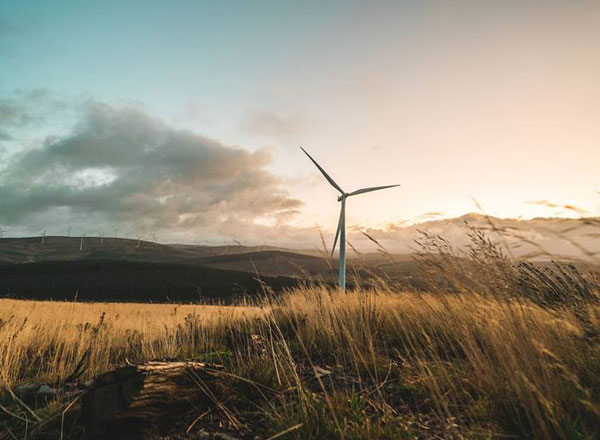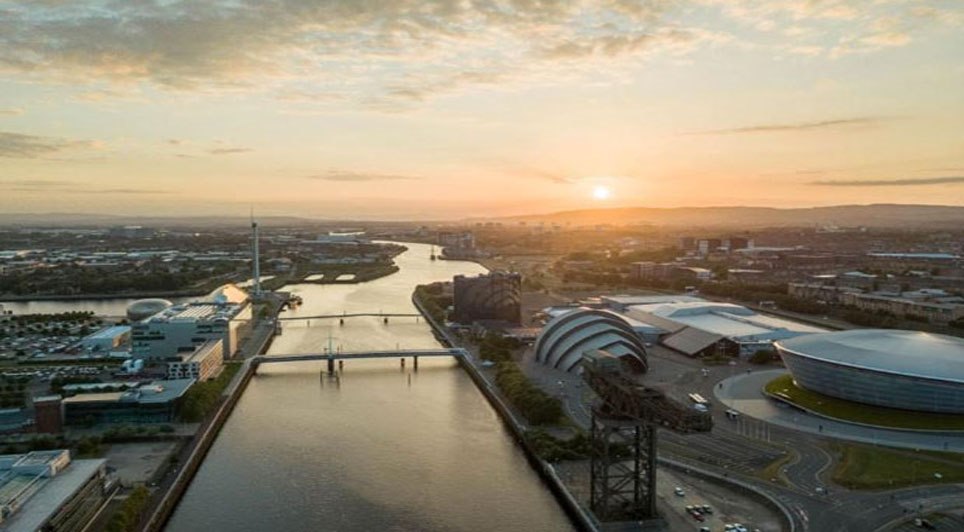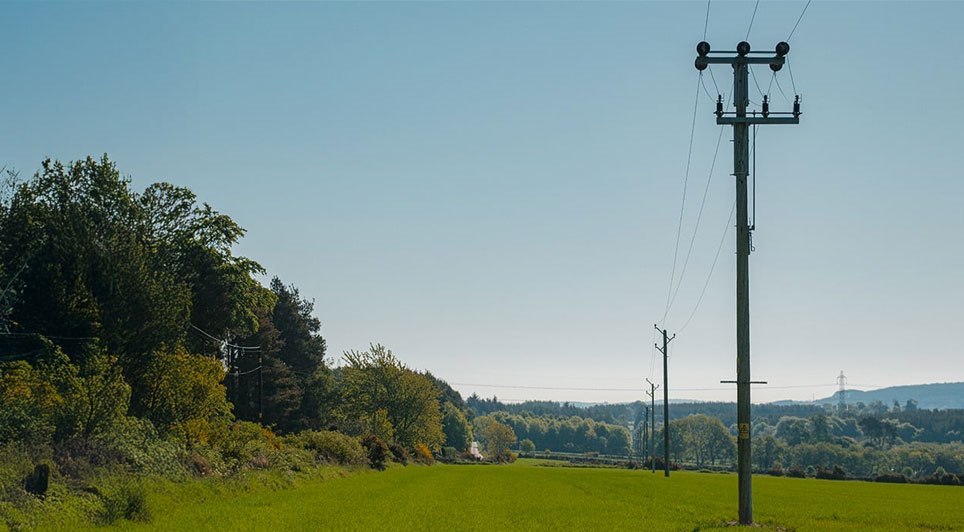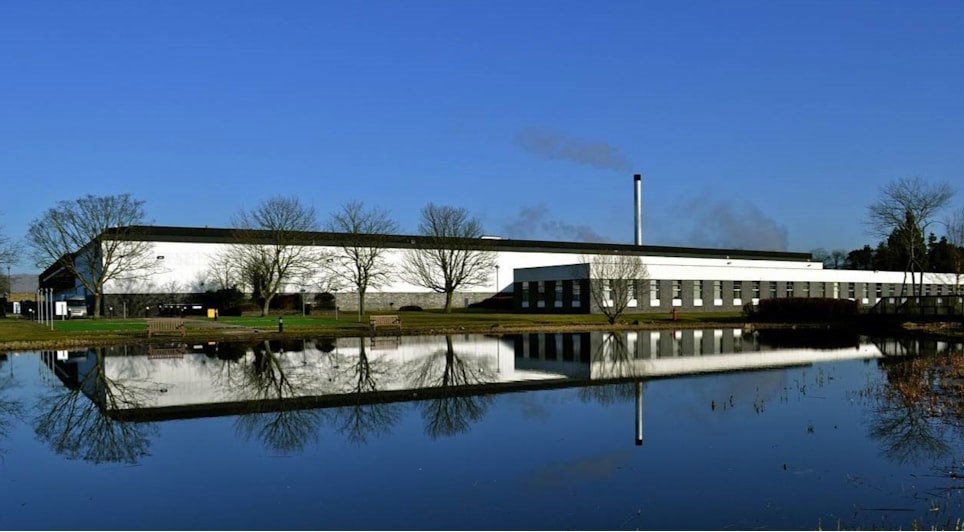SSE has published its seven key steps it believes are needed for the UK to met it's 'Net Zero' targets.
As a general election has been announced in December, SSE has welcomed the political consensus that has been built around the need to urgently address climate change and end the UK's contribution. With the world coming to Glasgow for the UN climate change summit at COP26 at the end of 2020, there is the opportunity for the UK to show global leadership.
SSE believes that an ambitious, economy-wide, decarbonisation agenda – focussed on delivery – will put the UK on course to meet its net zero ambition.
The firm's 'seven key steps' include:
1. BACK A RENEWABLES LED TRANSITION TO NET ZERO SSE supports the UK's adoption of a net zero target and stands ready to play a key role in meeting that objective. We believe that achieving net zero will require the UK to go faster and further on decarbonising electricity as the driver for decarbonising heat and transport as well as increasing our 2030 ambitions. The falling cost of renewables provides an opportunity for an affordable and secure transition to net zero which delivers economic benefits across the UK. The UK should increase offshore wind ambition from 30GW by 2030 to around 40GW, unlocking more benefits to UK plc. This should be delivered by regular renewables auctions (CfDs) which will keep investment low risk and attractive to investors. Onshore wind should also be allowed to compete in these auctions. A high level of renewables on the electricity system must be accompanied by a mix of technologies to ensure it can be flexible, low carbon and secure. As part of that, more attention needs to be given to the policy framework to enable large scale storage, such as pumped hydro.
2. START TO DECARBONISE UK INDUSTRY BY DEVELOPING LOW CARBON INDUSTRIAL CLUSTERS FOR CARBON CAPTURE USAGE AND STORAGE A renewables-led transition to net zero must be supported by progressively lower carbon, flexible gas generation to maintain security of supply. SSE firmly agrees with the Committee on Climate Change conclusion that plans for early deployment of CCUS must be delivered with urgency and that CCUS is a necessity not an option for reaching netzero GHG emissions. Gas generation with CCUS and hydrogen power are a quick, cost-effective decarbonisation pathway in comparison with nuclear, which has shown itself to be unable to deliver within budget or on time. These solutions can also decarbonise industry and transport through clusters developed around CCGT anchor projects, potentially in the Humber, NorthEast Scotland and the Thames Estuary. To kickstart the deployment of these technologies we urgently need clear government support and policy measures to bring forward capture, transport and storage infrastructure which will be the backbone of low-carbon clusters.
3. ACCELERATE THE ROLL-OUT OF ELECTRIC VEHICLE CHARGING INFRASTRUCTURE TO DECARBONISE TRANSPORT The electrification of transport will improve local air quality, reduce carbon emissions and help integrate renewables into the electricity system. The electric vehicles (EVs) coming to market are quickly becoming more attractive to customers with increased range and better performance, at an ACCELERATING THE DELIVERY OF NET ZERO SSE MANIFESTO 2019 lower cost. However, we need to roll-out extensive charging infrastructure to meet growing demand, and some areas are always likely to be uneconomic and underserved. SSE believes that local authorities and local electricity network companies could assist delivery of EV charging in their area via a new partnership model. In conjunction with local authorities and transport authorities, they would co-identify areas where on-street charging infrastructure is required and create tenders for third parties to deliver the charging infrastructure.
4. PREPARE THE WAY FOR A DECISION ON HEAT DECARBONISATION BY THE END OF THE NEXT PARLIAMENT Decarbonising the way in which we heat our homes and businesses poses one of the most significant challenges in meeting net zero. SSE believes a decision on a pathway to low carbon heat will need to be taken by the mid-2020s at the latest, making it a crucial matter for the new Parliament to consider as a priority. The new Government should publish a heat roadmap, which advocates the widespread electrification of heat, considers the role of local authorities in developing regional solutions and aligns with the development of industrial clusters to prepare for the deployment of low carbon heat from 2025 onwards.
5. ENHANCE THE ABILITY OF THE REGULATOR TO ENCOURAGE LOW CARBON INVESTMENT SSE supports the National Infrastructure Commission's recommendation to amend the statutory duties of the energy regulator, Ofgem, to include net zero within the organisation's remit alongside customer protections. This would give the regulator greater scope to ensure that the regulatory framework for networks provides a platform for accelerated decarbonisation and the electrification of heat and transport. For example, it would help encourage anticipatory investment in network infrastructure to prepare for the rapid uptake of electric vehicles and electric heat in the lowest cost and least disruptive way.
6. SUPPORT PRIVATE INVESTMENT IN THE ENERGY SECTOR TO DELIVER IN THE PUBLIC INTEREST SSE believes that independent economic regulation of privately-owned energy networks has created an efficient, reliable network which is delivering in the public interest and facilitating the transition to a low carbon energy system. The UK's energy networks are among the highest performing in the world: playing a vital role in the decarbonisation of the power sector; attracting record levels of investment from private sources; achieving customer satisfaction that is at an all-time high; and costing customers significantly less than was the case under state ownership. Renationalisation of the grid would be costly, highly disruptive and jeopardises further progress at a critical time in the transition to a low carbon economy.
7. ENSURE A STABLE, TRANSITIONAL POLICY ENVIRONMENT IN THE UK AND IRELAND THROUGHOUT ANY BREXIT TRANSITION AND FUTURE RELATIONSHIP SSE advocates a stable, transitional policy environment in the UK and Ireland throughout any Brexit transition, including preserving the Single Electricity Market (SEM) on the island of Ireland and strong carbon pricing linked to the EU ETS to underpin decarbonisation efforts. Whilst SSE has carried out comprehensive planning for a 'no-deal' scenario, it continues to believe that this would be a sub-optimal outcome for the UK energy sector and consumers. SSE supports a close and comprehensive relationship between the UK and EU on energy matters as the best way to deliver decarbonised energy and address the shared challenge of climate change.
Construction News
05/11/2019
SSE Publish 'Seven Key Steps' To Meet Net Zero Target


09/07/2025
Open spaces across Milton and Easterhouse in Glasgow have been designated for new community-led energy projects, designed to bring significant benefits directly back into local neighbourhoods. In total, four sites – one in Milton and three in Easterhouse – will make over 5.5 hectares of land availab

09/07/2025
Orkney Islands Council has welcomed a substantial £1.75 million allocation from the Scottish Government's Heat and Energy Efficient Scotland (HEES) scheme for the 2025-26 period. This funding is set to facilitate significant improvements to heating and insulation in homes across the county, aiding e

09/07/2025
Springfield Properties plc, a leading Scottish housebuilder, anticipates reporting profit before tax for its full year 2025 in line with market expectations, alongside an increase in revenue to £280 million (2024: £266 million).
This positive outlook is primarily attributed to significant land sal

09/07/2025
A significant £2.5 million upgrade to the electricity infrastructure is currently in progress between Banchory and Aboyne, undertaken by SSEN Distribution. This vital project, which involves collaboration with contract partner OCU, is set to bolster the reliability of power supplies for approximatel

09/07/2025
Visitors to Cumbernauld are set to notice a significant change in the town centre as the demolition of Fleming House rapidly approaches completion. This critical undertaking marks the initial phase of North Lanarkshire Council's ambitious 15-year plan to comprehensively regenerate the town centre.

09/07/2025
Stirling Council has launched a public consultation on proposals for four new active travel routes situated to the south of Stirling city centre. These planned high-quality travel corridors, earmarked for Burghmuir Road, the A9 in Bannockburn, St Ninians Road, and Glasgow Road, are set to converge a

09/07/2025
Restoration work is scheduled to commence next week on Tigh Mhicleoid in Colchester Square, Lochgilphead, marking the final priority building to benefit from the town's ambitious Conservation Area Regeneration Scheme (CARS).
This £2.3 million heritage-led project, jointly funded by Argyll and Bute

09/07/2025
SSEN Transmission has announced its comprehensive sponsorship of athletes from Team Orkney, Team Shetland, and Team Western Isles, making it the only company to back all three Scottish teams participating in the 2025 International Island Games. With approximately 500 athletes from Scotland's island

09/07/2025
Devro, a prominent global manufacturer of collagen casings, has commenced a substantial £2.9 million capital investment project at its Scottish facility in Moodiesburn.
The initiative is designed to drastically reduce the site's carbon emissions and boost overall productivity, aligning with the co

09/07/2025
Dumfries and Galloway Council has successfully secured £710,000 from the Scottish Government's Heat and Energy Efficient Scotland scheme to advance two pivotal projects identified in the Stranraer Place Plan. This substantial funding milestone is a significant step forward in the town's long-anticip
 Scotland
Scotland UK
UK Ireland
Ireland London
London











